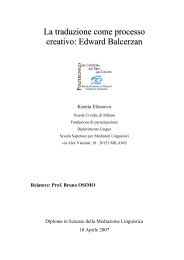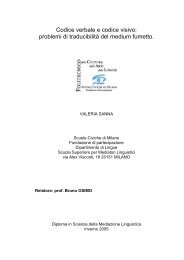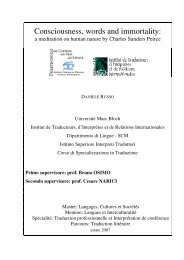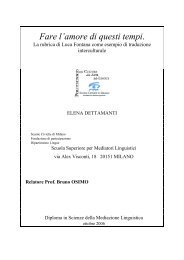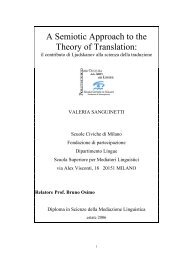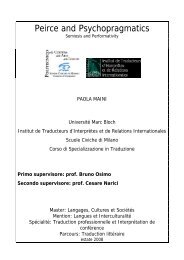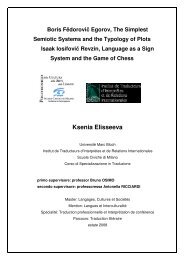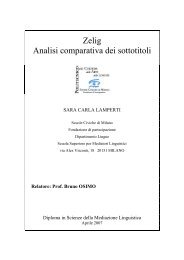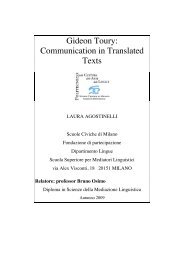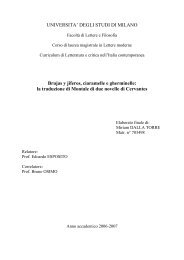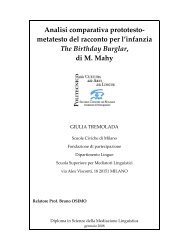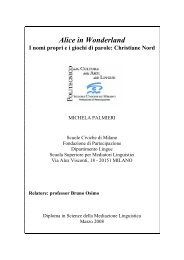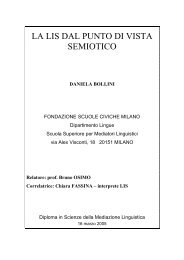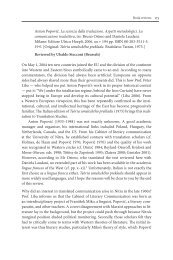Relatore: Professor Bruno OSIMO - Bruno Osimo, traduzioni ...
Relatore: Professor Bruno OSIMO - Bruno Osimo, traduzioni ...
Relatore: Professor Bruno OSIMO - Bruno Osimo, traduzioni ...
Create successful ePaper yourself
Turn your PDF publications into a flip-book with our unique Google optimized e-Paper software.
As think-aloud experiments cannot be defined as ‘situated activity<br />
systems’ in the same sense as surgical operations, the manifestations of role<br />
distancing in the present data seem to be connected to the function of role<br />
distancing as a form o psychological self-defence. Conspicuous displays of role<br />
distancing were observable only in the new data, and in the non-professional<br />
subjects’ behaviour in particular. There are two potential reasons for the<br />
apparent absence of displays of role distancing in the students’ translation<br />
processes. First, Goffman maintains (1961: 139f.) that learners are granted<br />
certain liberties in the period of learning, i.e. in the period of ‘role-taking’. The<br />
role-taker is allowed to make mistakes which would otherwise be considered<br />
discreditable, because ‘he has a learner’s period of grace in which to make<br />
them – a period in which he is not yet quite the person he will shortly be, and,<br />
therefore, cannot badly damage himself by the damaging expression of his<br />
maladroit actions’ (1961: 139). It seems possible that the students of<br />
translation see themselves as learners and, therefore, do not feel threatened by<br />
exposing themselves to observation n the experimental situation. Second,<br />
Goffman argues (1961: 109) that ‘immediate audiences figure very directly in<br />
the display of role distance’. In the two parts of my experiment, the immediate<br />
audience, i.e. the experimenter, may have occupied a slightly different role. In<br />
the first sessions, which were organised to collect data for my pro gradu thesis,<br />
the experimenter was ‘just a fellow student’ and, as a result, did not pose any<br />
kind of thereat to the students acting as subjects. In the new sessions, in<br />
addition to all the subjects having more firmly established roles in society, the<br />
experimenter as ‘a researcher’ might also have occupied a slightly different<br />
position, which, in turn, might have created a more face-threatening situation<br />
favourable to expressions of role distance.<br />
54



